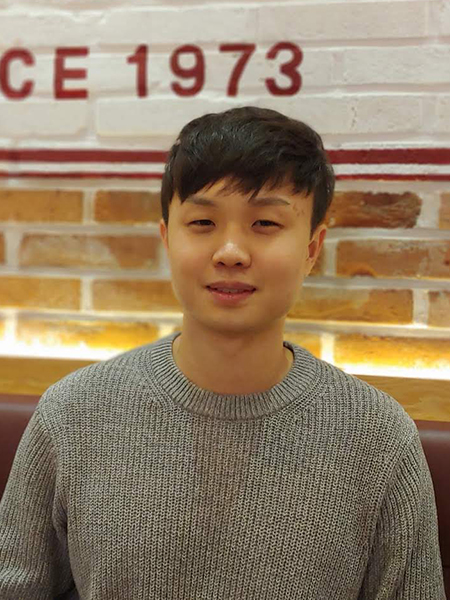
Allen School Ph.D. student Minjoon Seo has earned a 2019 Facebook Fellowship for his research in artificial intelligence and natural language processing. Seo develops systems for end-to-end question answering, reasoning-based question answering, and scalable deep-learning architectures in collaboration with Hanna Hajishirzi and Ali Farhadi, professors at the Allen School and researchers at the Allen Institute for Artificial Intelligence (AI2).
“Minjoon is a rising star in NLP and has made substantial contributions to the field of question answering, one of the most important areas in AI and natural language processing,” said Hajishirzi. “He tends to work on high-impact projects and has already earned more than 600 citations for his research.”
One of those high-impact projects is BiDAF — short for Bi-Directional Attention Flow for Machine Comprehension — which Seo worked on as a research intern at AI2 and is now widely used in academia and industry. With BiDAF, Seo and his collaborators have built a large-scale, end-to-end, deep neural question answering system that is capable of answering questions about both textual paragraphs and diagrams. The system is modular, enabling researchers and practitioners to extend it to multiple modalities and knowledge bases. Seo’s work has proven so popular, BiDAF ranked first on the leaderboard for three important new reading-comprehension datasets shortly after its release and is actively being used in many question answering systems in academia and industry.
Seo was lead author on the groundbreaking GeoS question answering system, the first end-to-end system for solving high school-level plane geometry problems developed by AI2 and Allen School researchers. GeoS demonstrated the ability to jointly understand textual and visual cues to answer SAT geometry questions as well as the average 11th-grade test-taker.
When GeoS was publicly announced, Farhadi noted in a press release that the biggest challenge for the team was to convert the SAT question into language a computer could understand. “One needs to go beyond standard pattern-matching approaches for problems like solving geometry questions that require in-depth understanding of text, diagram and reasoning,” he explained. Among Seo’s contributions to that effort was a new system for using visual cues in diagrams to improve understanding of the accompanying text. His work incorporated novel computer vision techniques for parsing diagrams and natural language processing algorithms for accurately parsing text, as well as a new algebraic solver that can solve the question based on a combination of textual and visual cues.
More recently, Seo has turned his attention to the design of algorithms for open-domain, scalable question-answering systems. For example, developed a tool called Skim-RNN that improves the scalability of recurrent neural networks using a technique inspired by the human approach to speed reading. Seo also worked on a new approach to question-answering during an internship with Google AI that requires a standalone representation of the question and the context. His method — known as Phrase-Indexed Question Answering, or PIQA — has the potential to significantly improve the scalability of question answering in addition to enabling more efficient retrieval.
Seo is among just 21 researchers recognized in Facebook’s 2019 Fellowship competition. The prestigious Facebook Fellowship Program recognizes and supports promising doctoral students at universities around the world who are engaged in innovative research spanning 15 areas of Computer Science and Computer Engineering. Past Allen School recipients include James Bornholt and Eunsol Choi (2018), Aditya Vashistha (2016), and Lydia Chilton and Nicola Dell (2013).
Learn more about the 2019 Facebook Fellows here.
Congratulations, Minjoon!

